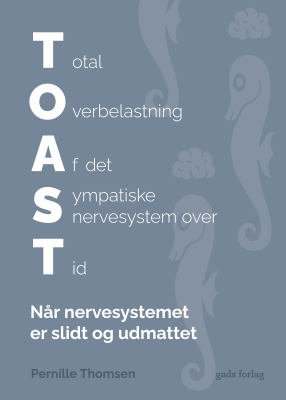
Illuminate Community Church
engelsk
Historie & religion
Begrænset tilbud
2 måneder kun 19 kr.
Derefter 99 kr. / månedOpsig når som helst.
- 20 lydbogstimer pr. måned
- Podcasts kun på Podimo
- Gratis podcasts
Læs mere Illuminate Community Church
Illuminate Community Church Podcast - Pastor Jason Fritz - Scottsdale, AZ
Alle episoder
448 episoder2/22/26 - Isaiah 53 - The Hero We Didn’t Expect - Pastor Jason Fritz
This Sunday, we’ll spend our time in one of the most profound passages in all of Scripture: Isaiah 53. It’s here that God reveals the hero He will send to rescue humanity, but not in the way anyone was expecting. We’re naturally drawn to powerful, impressive saviors - the kind who arrive with strength, spectacle, and instant victory. Isaiah shows us something very different: a Servant who comes quietly, without beauty or status, rejected rather than celebrated, and victorious not through force but through suffering. That contrast matters because it reveals the heart of God’s plan to save, not by avoiding pain, but by stepping directly into it for us. Isaiah spoke these words to a nation that was fractured spiritually, threatened politically, and marked by pride and empty worship. After decades of warning and calling God’s people back to trust in Him, Isaiah pulls back the curtain in chapter 53 to show how God would ultimately rescue His people. Not through military strength or national revival, but through a suffering Servant who would bear sin in silence. What makes this chapter so staggering is that it was written about 700 years before Jesus was born, yet it describes His rejection, innocence, suffering, crucifixion, burial, resurrection, and ongoing intercession with remarkable precision. This is history written in advance. As we walk through this chapter line by line, we’ll see both the weight of our sin and the depth of God’s mercy. Isaiah reminds us that all of us have gone astray, yet God has laid our iniquity on His Servant so that we might have peace with Him. For believers, this passage humbles us, heals our shame, and strengthens our confidence in the trustworthiness of Scripture. For those still considering faith, Isaiah 53 clearly explains why trusting Jesus matters so much - because ignoring sin doesn’t remove it, but trusting Christ transfers it. I’m praying this message will lead us all to gratitude, confidence, and a deeper trust in the Savior God has already sent.
2/15/26 - Isaiah 6:1-8 - When God Is No Longer Casual - Pastor Jason Fritz
This Sunday, we’re stepping into the book of Isaiah together, one of the major prophetic voices of the Old Testament. “Major” not because he’s more important than the others, but because his writing is longer and wider in scope. Isaiah ministers during a time of outward prosperity and inward decay. It's a season where religious activity is high, but repentance is low. Justice is neglected, worship is hollow, and trust in political solutions is quietly replacing trust in God. It’s into that exact environment that God raises up Isaiah to speak to the southern kingdom of Judah with a clear message: a holy God will not ignore persistent rebellion, but a gracious God will always make a way back for those who repent. At the heart of our time together will be Isaiah chapter 6, where Isaiah is given a glimpse into the throne room of God. In the year King Uzziah dies, a year of national uncertainty and personal disruption, Isaiah sees something that changes him forever: the Lord seated on His throne. What follows is not excitement, but reverence. Not just admiration, but confession. In the presence of God’s holiness, Isaiah suddenly sees himself with startling clarity. We’ll talk about why this kind of reverence feels so rare in our day, and how seeing God rightly always leads to seeing ourselves rightly. And then comes the beautiful turn in the story. The God who exposes Isaiah’s sin is the same God who moves toward him with atonement and cleansing. The lips that confess sin become the lips God commissions for service: “Here I am, send me.” We’ll see how this is the pattern God still follows - exposure, cleansing, and calling. My prayer is that as we look at this vision together, we won’t just admire Isaiah’s experience but allow it to shape our own view of God, ourselves, and the way we live in His presence.
2/8/26 - Habakkuk - Learning to Live by Faith When God is Silent - Pastor Jason Fritz
This Sunday, we’ll be absorbing the words of Habakkuk. This book contains one of the most honest conversations with God in all of Scripture. Habakkuk doesn’t begin by speaking to the people for God; he begins by speaking to God for the people. He looks at violence, injustice, and moral confusion and brings his burden directly to the Lord. His opening words sound less like polished theology and more like a prayer that borders on a complaint: “How long, O Lord?” Habakkuk permits us to bring real questions into the presence of a real God and shows us that wrestling with God is not faithlessness, but faith that refuses shallow answers. The book unfolds in three movements. In chapter 1, Habakkuk voices his concern as he watches corruption thrive while God appears silent. In chapter 2, God responds, not with the explanation Habakkuk expects, but with a call to trust His sovereign purposes and timing. Right at the center of the book, we’re given one of the most important statements in Scripture: “The righteous shall live by his faith.” That truth becomes the anchor when God’s ways don’t make sense, and His timing feels slow. Faith, we’ll see, is not living by feelings or circumstances, but by trusting the character of God. Chapter 3 closes the book with a prayer set to music - a psalm of resolved trust. Habakkuk confesses that even if everything he depends on fails: “though the fig tree should not blossom...,” he will still rejoice in the Lord. His circumstances haven’t changed, but his posture has. We’ll see how God meets us in our questions, reshapes our hearts through waiting, and teaches us how to live not by sight, but by faith. I’m praying this text will steady and strengthen you wherever you find yourself in life.
2/1/26 - Micah - What God Requires - Pastor Jason Fritz
This Sunday, we’ll turn to the prophet Micah, another short book that packs a serious punch. Micah is written to people who look spiritually healthy on the outside but are deeply compromised on the inside. Worship is happening, sacrifices are offered, and religious life appears vibrant. Yet God exposes a sobering reality: proximity to religion does not equal faithfulness to God. Micah reminds us that God is not fooled by appearances, and that religious activity without transformed hearts ultimately rings hollow. Micah opens with courtroom language. God summons the whole world as His witness and brings charges against His own people. He begins with especially corrupt leadership and social injustice. Those entrusted to protect had become predatory, and those with power exploited the vulnerable. God makes clear that faith that ignores justice misunderstands His character. When confronted, the people ask what God wants - more sacrifices, bigger offerings, greater performance? God’s answer is simple and unsettling: He has already told them what is good. That answer comes in Micah 6:8 "...to do justice, to love mercy, and to walk humbly with your God." This week, we’ll explore how these three belong together, especially as justice intersects with real and difficult issues in our culture. We’ll see how God anchors justice in memory, mercy, and humility, and ultimately how Micah points us to Jesus, the promised King from Bethlehem, who bears judgment so we can receive mercy. My prayer is that God uses this text not just to inform us, but to reshape how we live as His people.
1/25/26 - Hosea - When Love Is Betrayed but Not Abandoned - Pastor Jason Fritz
This Sunday, we’ll step into one of the most personal and emotionally charged books in all of Scripture: the book of Hosea. Hosea ministered in the northern kingdom of Israel during a time of political chaos, moral collapse, and rampant idolatry, just decades before the Assyrian invasion. What makes Hosea unique among the prophets is that God used Hosea's marriage as the message. God commanded Hosea to marry Gomer, a woman marked by unfaithfulness, and then to love her faithfully even as she repeatedly betrayed him. Hosea’s life became a living illustration of God’s own relationship with Israel - a steady love met with constant wandering. Through Hosea, God reveals that idolatry is not merely rule-breaking; it is a relational betrayal. Israel didn’t deny God’s existence; they simply didn’t want to interact with Him anymore. They pursued other “lovers” for security, pleasure, and identity, while assuming God would always be there. Hosea speaks not like a detached preacher, but like a wounded husband whose heart has been broken again and again. And yet, woven through the warnings and judgment is something astonishing: God refuses to give up. His discipline is not abandonment; it is pursuit. Even after declaring, “Not My People,” God immediately promises restoration by turning judgment into hope and exile into homecoming. Perhaps the most powerful moment comes when Hosea is told to go find Gomer again. She has been used, discarded, and for sale. He buys her back. This is where Hosea’s story becomes unmistakably gospel-shaped. God does not wait for His people to clean themselves up; He goes after them. He pays the price. He restores the relationship. Hosea answers a timeless question: What does God do when the people He loves keep cheating on Him? The answer is not indifference, but heartbreak, discipline, relentless pursuit, and ultimately restoration. I can’t wait to open this book together and hear God’s tender but urgent call: “Return to the Lord your God.”
Vælg dit abonnement
Begrænset tilbud
Premium
20 timers lydbøger
Podcasts kun på Podimo
Gratis podcasts
Opsig når som helst
2 måneder kun 19 kr.
Derefter 99 kr. / måned
Premium Plus
100 timers lydbøger
Podcasts kun på Podimo
Gratis podcasts
Opsig når som helst
Prøv gratis i 7 dage
Derefter 129 kr. / måned
2 måneder kun 19 kr. Derefter 99 kr. / måned. Opsig når som helst.















































